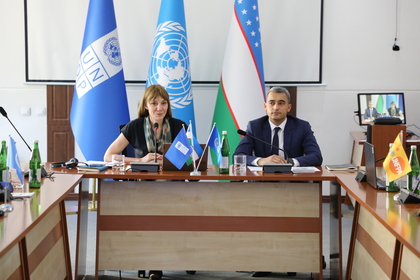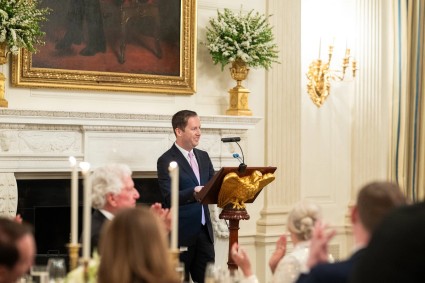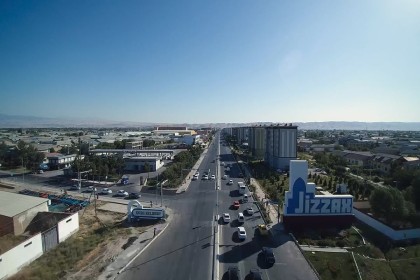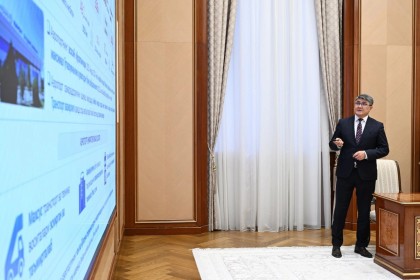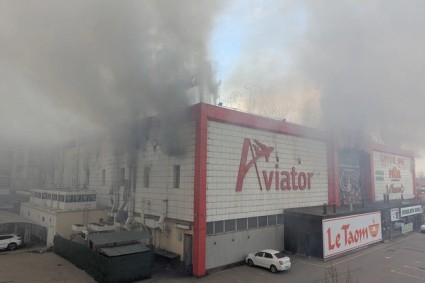Today, the UNDP, UNFPA, and FAO convened the final board meeting to announce the outstanding results of the joint programme focusing on "Unleashing young people's and vulnerable citizens' creativity and innovation by strengthening their adaptive capacity to address economic and food insecurities in the exposed communities of the Aral Sea region".
This initiative, funded by the Multi-Partner Human Security Trust Fund (MPHSTF), has made significant progress in addressing human insecurities in the region.
Matilda Dimovska, UNDP Resident Representative in Uzbekistan, highlighted the tangible benefits that the Joint Programme has brought to the local population of the Aral Sea region in her welcome speech. Moreover, she noted:
“During my last trip to Karakalpakstan, it was so wonderful to see how people take care of the environment, at the same time farmers in the region are so eager to preserve biodiversity”.
Launched in 2021, the Joint Programme aimed to achieve three key goals. Firstly, it sought to empower and promote essential entrepreneurial skills among unemployed, unskilled youth, women, and returning migrants, reducing their vulnerabilities. Secondly, the programme aimed to create an enabling environment for income generation in rural communities through innovative agriculture practices and piloting new initiatives. Lastly, it aimed to develop smart communities through digitalization, improved access to social infrastructure, and youth, adolescent, and women's engagement. With a dedicated focus on these goals, the Joint Programme has achieved remarkable outcomes:
- Over 16,000 rural residents gained access to basic infrastructure, including drinking water, electricity, improved health facilities, and education services.
- SMART communities created through digitalization have benefitted 101,500 people.
- A total of 816 individuals, including 552 women, have enhanced their knowledge and skills in agriculture.
- Employment opportunities have been provided to 73 vulnerable households identified in the "iron notebook."
- The introduction of "Buried Diffuser" technology has demonstrated its ability to increase yield by 41% and save 20% water.
- A total of 543,000 saxauls have been planted across 378.2 hectares.
- Clean drinking water is now accessible to more than 14,388 people in rural areas of the Aral Sea region.
- 80 young individuals from the "youth notebook" have acquired welding and plumbing skills, earning qualifications.
- 72 participants have been trained in startup initiatives related to ecology, IT, social issues, tourism, agriculture, and climate change. Among them, 17 startup projects were considered, and equipment was provided for 6 projects.
- Vocational training centres have been established in 3 target areas of the Programme, benefiting 1,120 young people who have received training and employment opportunities.
The Joint Programme was implemented by UNDP in partnership with UNFPA and FAO, with financial support from the MPHSTF. The Ministry of Investment, Industry and Trade of the Republic of Uzbekistan, the Ministry of Economy and Finance of the Republic of Uzbekistan, the Council of Ministers of the Republic of Karakalpakstan, the Committee on Women and Family Issues, Khokimiyats of Muynak, Kungrad, and Bozatau districts, the Chamber of Commerce and Industry of the Republic of Karakalpakstan, and the Council of Farmers, Dekhkan Farms, and Owners of Household Plots of Karakalpakstan, Digitalization Agency also provided invaluable assistance throughout the programme's implementation.

